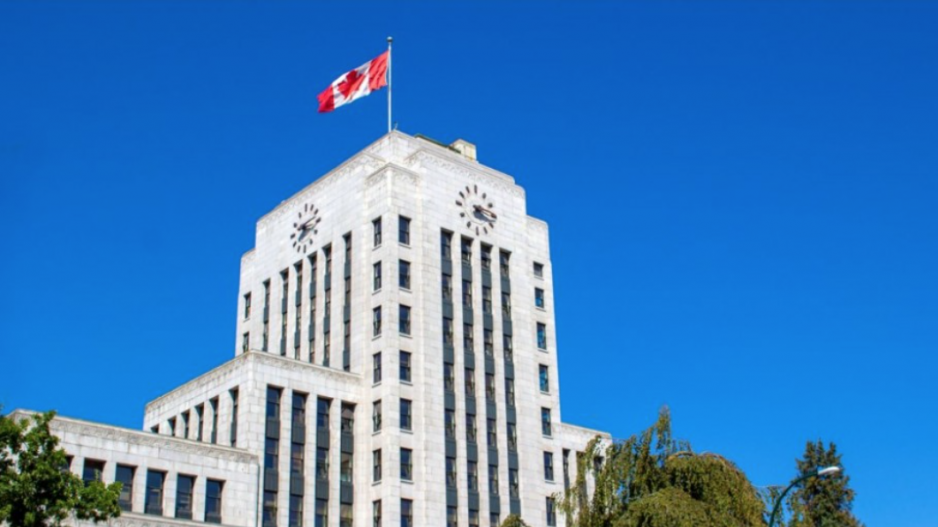Negotiators for Vancouver City Hall and the Squamish Nation discussed keeping the services agreement for the Senakw development secret.
Documents from closed-door Vancouver city council meetings, filed in response to the Kits Point Residents Association (KPRA) application for B.C. Supreme Court judicial review, include a July 2021 report from a city hall manager. Major terms of the agreement were substantially complete, except for whether to make the agreement public.
“While council provided earlier direction to make the entire services agreement available to the public, the Squamish Nation’s position is that the agreement should remain confidential, with only a short, high-level summary of the key terms to be made public,” wrote Ben Pollard, the city's director of business planning and project support.
In June 2021, Toby Baker was CEO of Nch’kay Development Corp. (NDC), the Squamish Nation company behind the Senakw development on 4.7 hectares of Kitsilano Indian Reserve 6 land. He wrote to city manager Paul Mochrie to emphasize the confidentiality of the service agreement.
“As the city recognizes and accepts, we are a fourth level of government within the federal and provincial framework, however our primary obligation is to our band members and council,” Baker wrote. “This service agreement, while it is between our respective governments, is ultimately a private business arrangement which would normally not be open to public view.”
Baker conceded that the city has a duty to inform taxpayers, so he proposed a short list of five general “talking points” that the city could release without revealing sensitive financial terms.
Pollard’s report included a sample, three-page summary of the services agreement that the parties were considering instead of publishing the full contract. The summary omitted financial terms.
The issue was eventually settled with an “open government and transparency” clause, but not the city’s standard Freedom of Information and Protection of Privacy Act wording. The 250-page, 120-year agreement released publicly last July 29 spells out how Senakw will connect to the city’s water and storm sewers, sidewalks, roads, bike lanes and public transit, and who pays for what. Squamish Nation’s development partner Westbank began work last summer on the first phase of an envisioned four-phase, 11-tower residential complex around the south side of the Burrard Bridge.
Then-mayor Kennedy Stewart and Squamish Nation council chair Dustin Rivers, also known as Khelsilem, signed the agreement at a May 25 on-site photo op. Pollard’s affidavit includes a copy of an escrow agreement that Rivers signed the previous day with Mochrie and city solicitor Francie Connell for Squamish Nation law firm McCarthy Tetrault to keep the document secret until at least June 3 while it underwent further review and negotiation.
The city’s court filings say it continued to negotiate final terms until July 19. The agreement was quietly added to the city website on the eve of B.C. Day long weekend. No public announcement was made.
KPRA and two of its directors, Eve Munro and Benjamin Peters, filed for a judicial review on Oct. 5 in B.C. Supreme Court. They want a judge to quash the agreement because the city negotiated and approved it in secret. Residents were not given the opportunity to be heard at an open city council meeting, allegedly violating procedural fairness and natural justice, according to the KPRA filing.
The city maintains it acted properly under both the Indian Self-government Enabling Act and the Vancouver Charter, and that council has authority to pass resolutions behind closed doors.
The reports provide a glimpse into difficult aspects of negotiations. For instance, the Squamish Nation’s original stance on land rights claimed the Burrard Bridge was trespassing on reserve land.
“The nation has proposed a contribution of continued use and access to the Burrard Bridge and rights of way on parts of the surrounding streets,” said the internal city report. “Because this element is rife with legal, historical and financial sensitivities, significant effort has been exerted to create a position to which both the city and the nation can agree.”
Both sides acknowledged the bridge as an essential piece of regional infrastructure and the Squamish Nation committed that development would not cause any detrimental impacts to the bridge.
In the final version, the parties explicitly acknowledged different positions on ownership and legal access rights and reserved “all existing legal rights (actual or alleged)” to the bridge, street utilities and assets.
An appendix lists $48.43 million of costs estimated for 15 street, bike lane, sewer and seawall projects, mostly paid by the Squamish Nation. Of that, $15 million is the estimate to build a transit hub on the bridge.
Prime Minister Justin Trudeau announced a $1.4 billion loan at the Sept. 6 Senakw groundbreaking ceremony through Canada Mortgage and Housing Corp. to finance half the units in the first two phases.
Before Squamish Nation members voted in 2019 in favour of the 50-50 partnership with Westbank, they received an expert report that estimated the project could generate as much as $12.7 billion in cash flow for the band and developer.




